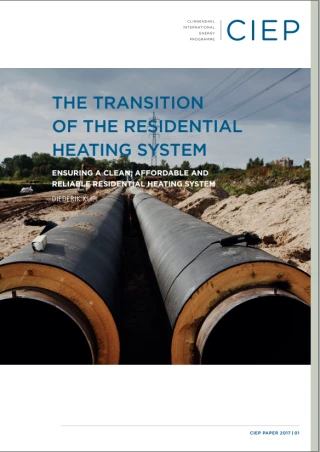
The Transition of the Residential Heating System
- Publication:
- CIEP, June 2017
Ensuring a Clean, Affordable and Reliable Heating System
Â
Stakeholders and policy-makers increasingly recognize the magnitude of the coming challenge to decarbonize the residential heating system, which represents approximately 15% of Dutch final energy consumption. This CIEP paper considers three alternative heating options which could reduce emissions in the run-up to 2050 and eventually have the potential to become fully carbon neutral, namely: all-electric heat pumps, district heating and hybrid heat pumps.
Looking at the current transition efforts being undertaken in the Netherlands, it appears that there are no mechanisms in place to steer stakeholders, such as end users, housing corporations, homeowners, market parties, energy network companies and project developers, toward achieving demonstrable CO2 emission reductions from a supply chain perspective. Furthermore, it seems that the reliability and affordability of alternative heating options are not actively considered.
An important observation is that stakeholders do not take account of the whole supply chain of alternative heating options, but only consider the costs with which they are directly confronted, such as for heating equipment or building energy efficiency measures, hereby limiting their 'system boundary' to a small part of the supply chain.
This paper provides a qualitative analysis of the supply chains of the alternative heating options and highlights some important considerations that affect the CO2 performance, reliability and affordability of these options. The paper highlights some disincentives in the current regulatory framework and appeals for more stakeholder coordination to make the supply chain costs more transparent.
Â





